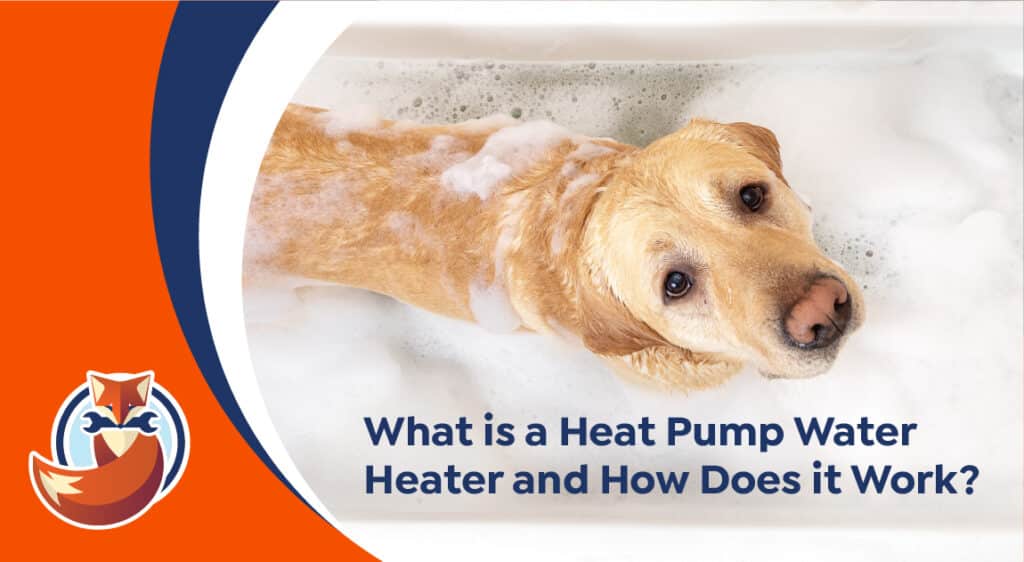Heat Pump Water Heaters operate on an innovative technology that draws heat from the surrounding air, making them highly energy-efficient. Here’s what you need to know about heat pump water heaters and save money while taking advantage of the existing heat in your home.
Heat pump water heaters are an excellent choice for homeowners who want to reduce their environmental footprint. They are growing in popularity among homeowners for their efficiency, low maintenance, and cost savings compared to traditional systems.
Heat pump water heaters use electricity to transfer heat from the air to the water, instead of heating the water directly using an energy source as conventional water heaters do.
A fan at the top of the unit draws in air across an evaporator, which is a series of refrigerant-filled tubes. The evaporator acts like a dehumidifier, blowing cooler, drier air back into the space. The heat from the ambient air of the water heater’s location, (typically your utility room) is transferred to the refrigerant, which is pumped through a compressor to increase its pressure and temperature.
The heated refrigerant then passes through a coil wrapped around the water tank and transfers its heat to the water. Now cooler, the refrigerant returns to the evaporator and the cycle begins again.
Hybrid water heaters (heat pump water heaters) are so named because they also have backup electric resistance elements, like conventional water heaters, that can be used to augment hot water if your demand outruns your supply.

Pros of Heat Pump Water Heaters
When we compare heat pump water heaters to conventional water heaters, energy efficiency is just one of the positive aspects of this type of technology. Here’s why you might consider purchasing a heat pump water heater.
 Energy Efficient
Energy Efficient
As mentioned, a heat pump water heater is more energy efficient than conventional electric water heaters, they don’t rely on other energy sources like gas or propane to generate heat directly.
Environmentally Friendly
Heat pump water heaters are better for the environment than conventional water heaters because they use less fossil fuels.
Longevity
A traditional electric water heater will last about 10-12 years. A heat pump heater may endure about twice that long.
Drawbacks of Heat Pump Water Heaters
Upfront Cost
Although a heat pump water heater will save money in the long run, the upfront installation costs may be higher than a conventional hot water tank.
Space Requirements
A heat pump heater won’t perform well in closed, narrow spaces, they perform best in a utility room close to your furnace. A heat pump water heater unit requires a steady supply of warm air because the heat pump constantly transfers heat to the storage tank.
Performance in Colder Climates
A heat pump water heater draws heat from warm air, which works great in hotter weather. During the winter in colder climates, a heat pump heater may have to switch from heat pump mode to electric mode frequently. This means lower energy efficiency and fewer savings.
Why Work with Fox Plumbing Heating Cooling Electrical
Fox Plumbing Heating Cooling Electrical is proud to be a trusted name in Vernon and nearby areas. With over two decades of experience, we have effectively tackled a wide range of heating and cooling issues. No job is too difficult for Fox!


